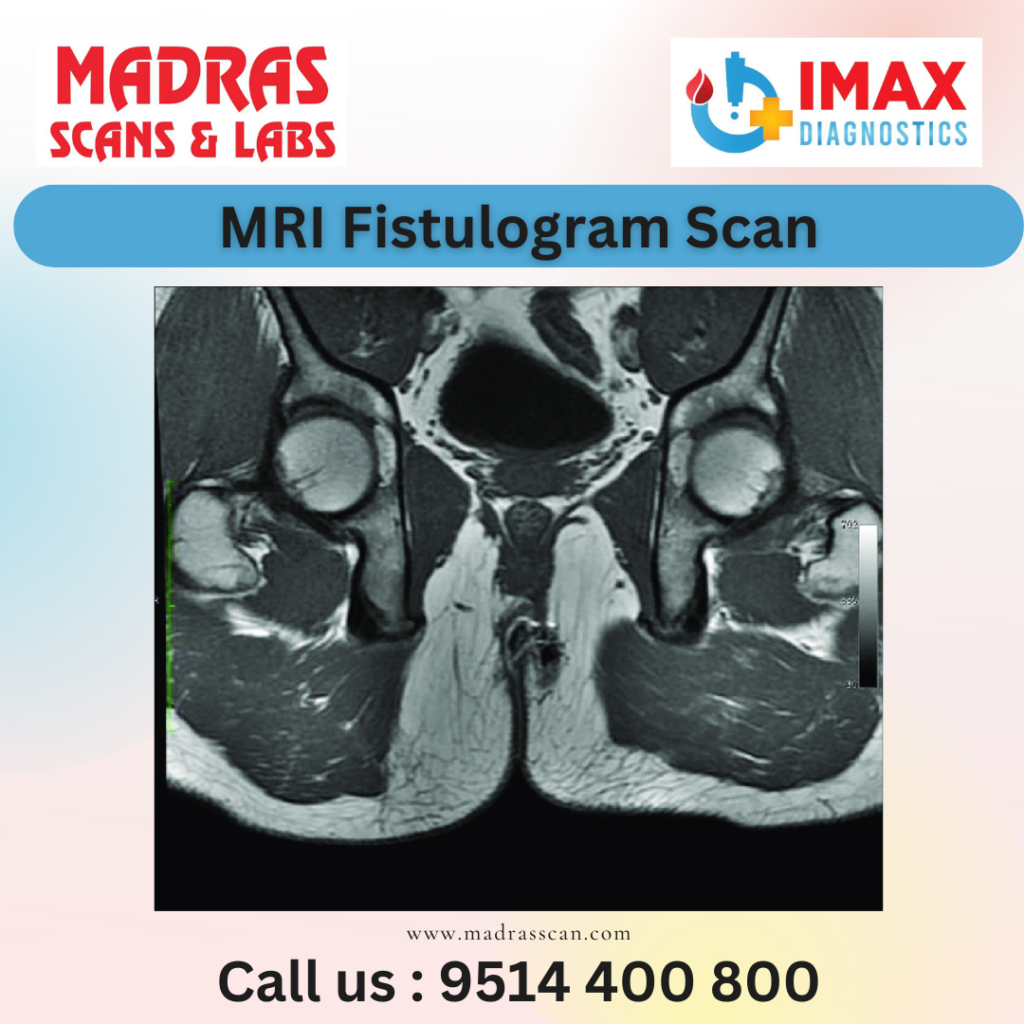An MRI fistulogram is a specialized medical imaging technique used to visualize and assess fistulas within the body. Fistulas are abnormal connections or passageways that form between two organs, vessels, or structures that should not normally be connected. These can occur for various reasons, including infections, surgery, or other underlying conditions. An MRI fistulogram helps healthcare professionals diagnose and evaluate the extent of the fistula, plan appropriate treatment, and monitor its progress. Here are some benefits and key points about MRI fistulograms:

Non-Invasive Imaging: Unlike traditional fistulography, which involves injecting contrast dye directly into the fistula tract, an MRI fistulogram is a non-invasive procedure. It uses magnetic resonance imaging (MRI) technology to create detailed images of the fistula and surrounding tissues without the need for invasive procedures.
High-Quality Imaging: MRI provides high-resolution images that allow for excellent visualization of soft tissues, blood vessels, and organs. This enables healthcare providers to accurately assess the size, location, and path of the fistula, as well as any potential complications.
Detailed Anatomical Information: An MRI fistulogram can provide detailed anatomical information about the fistula, its relationship with nearby structures, and any associated abnormalities. This information is crucial for surgical planning and determining the most appropriate treatment approach.
Diagnostic Tool: MRI fistulograms are commonly used for diagnosing various types of fistulas, including gastrointestinal fistulas, perianal fistulas, arteriovenous fistulas, and more. The imaging helps confirm the presence of a fistula, determine its cause, and identify any underlying conditions contributing to its formation.
Treatment Planning: Once the fistula has been accurately characterized, healthcare professionals can use the MRI images to plan the most suitable treatment approach. This could involve surgical intervention, drainage procedures, or other therapeutic measures.
Monitoring Progress: After treatment, follow-up MRI fistulograms can be performed to assess the success of the intervention and monitor the healing process. Comparing images over time helps healthcare providers gauge the effectiveness of treatment and make any necessary adjustments.
Reduced Risks: Since MRI fistulograms do not involve radiation exposure or invasive procedures, they carry fewer risks and complications compared to other imaging methods or invasive techniques.
It’s important to note that while MRI fistulograms offer numerous benefits, they might not be suitable for every patient or every type of fistula. The decision to use an MRI fistulogram will depend on various factors, including the patient’s medical history, the suspected location of the fistula, and the information needed for treatment planning.
As medical technology evolves, the specific details and benefits of MRI fistulograms may continue to advance. It’s advisable to consult with a qualified healthcare professional to discuss the most appropriate diagnostic and imaging options for your specific condition.
For a painless MRI Scan Chennai, consider Madras Scans & Labs as your go-to destination. It is the most trusted MRI scan center in Chennai with its exceptional and secure diagnostic services at an affordable pricing system.
Give us a quick call at 9514400800 or visit us at https://www.madrasscan.in to know more about MRI Scan and our attractive price package.
